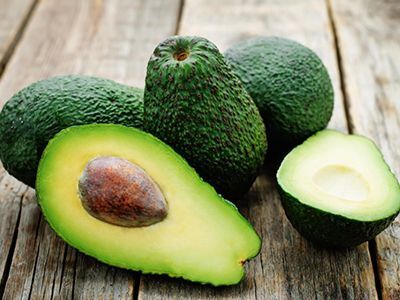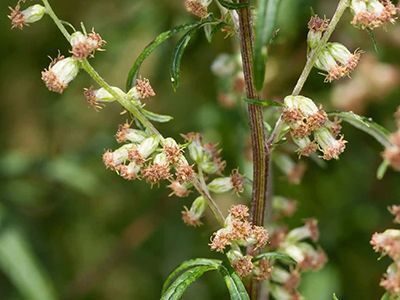Cultivating Inner Vitality
authored by Taylor Appel, Registered Herbalist (AHG)

Vitality is a word synonymous with aliveness. A strong sense of vitality can significantly impact our experience of health. Similarly, if we live with a chronic illness like cancer or an autoimmune condition, our sense of vitality can become dampened by fear and self-prescribed limitations surrounding a diagnosis, or thoughts of having to manage symptoms for an unknown amount of time. For those of us seeking a wholistic way to live, dietary and lifestyle approaches, along with botanical medicine, can help us make great strides toward cultivating inner vitality of the mind, body, and spirit.
What is Vitality?
Vitality is a life force that comes from within. It is influenced by dynamic factors, from the quality and kind of relationships we have, to the foods we consume. Research illuminates how our subjective, or self-perceived experience of life is a substantial factor in our overall vitality.1 This suggests our day-to-day choices and subjective perceptions are ultimately what determines the amount of energy we have available at any given moment. This energy directly correlates to our mind and body's capacity to overcome any opposition, including and especially health challenges.
Lifestyle Practices that Nurture Vitality
The presence of strong vitality affords the body greater resilience as we move through life. Just as training for a marathon prepares us for the big race, cultivating vitality through daily practices prepares our body for any challenges that may occur. A few examples for how to nurture greater vitality include practicing gratitude, slowing down and resting, and moving intentionally through the day. I personally do this by consciously letting go of what I cannot control and creating small moments of reflection. These simple practices instantly slow me down from the hustle of my everyday life and help me be aware of how to best support my body and optimize my health.
Here are several more suggestions for living intentionally as a way to cultivate vitality:

Light a Candle
The dim light of a candle is both relaxing and captivating. It’s no surprise that the simple practice of lighting a candle for intentional purposes is used by many cultures to call in healing, knowledge, and spirit. Taking a few minutes to admire a flickering candle can ground us in our breath, drop us into our bodies, and create a safe space to explore what we need most in that moment. I recommend lighting a candle in the morning and sitting in quiet reflection for a few minutes each day to support a healthy sense of vitality.
Ground in Nature
Did you know that time in nature used to be prescribed by physicians as a therapeutic protocol for certain ailments? That’s because taking time to commune with nature, feel the grass under our feet and the fresh air on our faces, promotes an instant sense of vitality! Try stepping outside first thing in the morning, or opening the closest window to your bed, allowing the natural light into your eyes, taking in a few deep breaths, and just being present in the stillness of that moment.

Make an Altar
A personal favorite of mine is making an altar. You can do this by creating an intentional space in your home for a small display of meaningful objects. Altars serve as a safe space for reflection and a way to set intentions for future goals, including health. Anything from pictures to rocks can be put on your altar. There are no rules -- as long as the object is meaningful to you! Try and visit your altar daily to express gratitude for life, remind yourself of your inner power, and most of all, your ability to heal and be vital.
Practice Visualization
Another powerful tool used to cultivate vitality is to visualize yourself healthy, thriving, and able to take on any challenge the world throws your way. This mindfulness practice helps create a strong self–perception of wellness. You can also visualize your favorite place or somewhere you feel at peace to help evoke a sense of safety and groundedness in the body. Taking time each day to sit and visualize your healthiest self can do wonders for your physical and spiritual well-being.
Diet & Vitality
Dietary choices have a big impact on our physical, mental, and spiritual health. When we eat a diet rich in bioflavonoids, antioxidants, vitamins, and minerals, we tend to feel energized, capable, and full of life. Conversely, a diet that is devoid of nutrients from foods that are highly processed and full of refined sugars and grains can leave us feeling unable to thrive. Vitality literally feeds off these dietary choices, translating them into our life force and ultimately the ability to be healthy.
While chronic disease is not something we choose to have, studies find that we have the power, through self-perception, to mitigate some of the negative effects of health conditions merely through possessing a strong sense of vitality.1,3 By making more mindful dietary choices, and fueling the body with the nutrients it needs, we can feel revitalized and regain our vital force and spirit.
Here are two of my favorite foods that supercharge vitality:
Beetroot
This brightly colored root vegetable is packed with antioxidants, vitamins, and minerals that help to nourish every cell of our bodies! The deep red color of beets is indicative of its blood nourishing qualities. Research finds that regular beetroot consumption may be supportive for heart disease, diabetes, high blood pressure, and asthma.6 The betaine in beets is an active polyphenol that helps regulate inflammation in the body. Beets have also been found to have anticancer actions and regular consumption supports healthy detoxification pathways.6 I love to enjoy beets roasted in the oven, grated raw over a salad, or blended into soups. Beets give any dish a vibrant splash of color, as well as a potent dose of vitamins essential for cultivating long lasting vitality.

Avocados
This tropical fruit provides a healthy source of fats, vitamins, minerals, and fiber needed to live a life fueled by vitality. Avocados are also an incredible anti-inflammatory fruit. Studies find that regular consumption of avocados can be supportive for cognitive, metabolic, and cardiovascular health. Specifically, avocados can aid in reducing LDL cholesterol and help to promote normalized HDL cholesterol levels, removing and reducing the amount of arterial plaque in the body.7 Avocados make a great addition to smoothies, adding creaminess and a slightly sweet, earthy flavor. They are also delicious on salads, in dips, and with an egg baked right inside -- yummy!
Herbs for Vitality
There are many herbs that promote vitality and that nurture a strong sense of spirit. Traditionally, relationships to plants and nature were synonymous with healing. Cultures have used plants for thousands of years in healing, ceremony, and for dietary purposes -- each a strong component of cultivating vitality. Even today, the World Health Organization estimates that about 75% of the world population uses herbal medicine to aid in their healing processes.2 Consuming medicinal herbs or communing with them in nature can support vitality and healing on many levels. Some of my favorite ways to use plant medicines are in teas, herbal baths, and as adornments on my altars.
Two of my favorite herbs to support vitality by nourishing the spirit include:
Mugwort
Artemisia, the latin name given to Mugwort, stems from the Greek goddess Artemis -- ruler of hunting, the wild, and the moon. Interestingly, Mugwort is commonly associated with sleep and relaxation, and has traditionally been used to help bring awareness to dreams as they pertain to our waking life. It is also said that mugwort may increase or produce a dream-like state of consciousness and help ward off evil spirits or negative energy, especially when burned. Mugwort also possesses potent bitter polyphenolic compounds that support digestive function, detoxification, and may ease depressive states -- another reason why it is an incredible ally in cultivating vitality.5

Rose
The gentle scent of a delicate rose always makes me swoon. My heart feels lighter when I smell a fresh rose or rose essential oil, and is especially helpful if I feel depressed or physically depleted. Research reveals the profound effect merely viewing roses can have on our physiology. Study participants reported feelings of being more relaxed, comfortable, and natural, with an emphasis on mood enhancing benefits.4 Roses, both physically and energetically, can invoke a sense of vitality.
Take time to intentionally welcome vitality into your life by practicing mindfulness throughout the day. Invite in moments of stillness and reflection as well as child-like joy and wonder to help you increase your perception of vitality, and therefore support your health and well-being. Our minds are actually powerful enough to have a miraculous effect on our physical health, so take heart knowing you can have a significant influence on your ability to thrive. You actually are medicine itself!
Join the Mederi Center community by signing up for our email list! We send several emails a month with product promotions for patients, practical tips for healthy living, blogs written by our practitioners, information about events, and other news. You can unsubscribe at any time.
References
- Ryan RM, Frederick C. On energy, personality, and health: subjective vitality as a dynamic reflection of well-being. J Pers. 1997;65(3):529-565. doi:10.1111/j.1467-6494.1997.tb00326.x
- Pan SY, Litscher G, Gao SH, et al. Historical perspective of traditional indigenous medical practices: the current renaissance and conservation of herbal resources. Evid Based Complement Alternat Med. 2014;2014:525340. doi:10.1155/2014/525340
- https://medericenter.org/file_download/inline/52d5ee07-a78f-4d5d-a474-5cc8f7ee0579
- Ekiert H, Pajor J, Klin P, Rzepiela A, Ślesak H, Szopa A. Significance of Artemisia Vulgaris L. (Common Mugwort) in the History of Medicine and Its Possible Contemporary Applications Substantiated by Phytochemical and Pharmacological Studies. Molecules. 2020;25(19):4415. Published 2020 Sep 25. doi:10.3390/molecules25194415
- Song C, Igarashi M, Ikei H, Miyazaki Y. Physiological effects of viewing fresh red roses. Complement Ther Med. 2017;35:78-84. doi:10.1016/j.ctim.2017.10.001
- Clifford T, Howatson G, West DJ, Stevenson EJ. The potential benefits of red beetroot supplementation in health and disease. Nutrients. 2015;7(4):2801-2822. Published 2015 Apr 14. doi:10.3390/nu7042801
- Wang L, Tao L, Hao L, et al. A Moderate-Fat Diet with One Avocado per Day Increases Plasma Antioxidants and Decreases the Oxidation of Small, Dense LDL in Adults with Overweight and Obesity: A Randomized Controlled Trial. J Nutr. 2020;150(2):276-284. doi:10.1093/jn/nxz231


